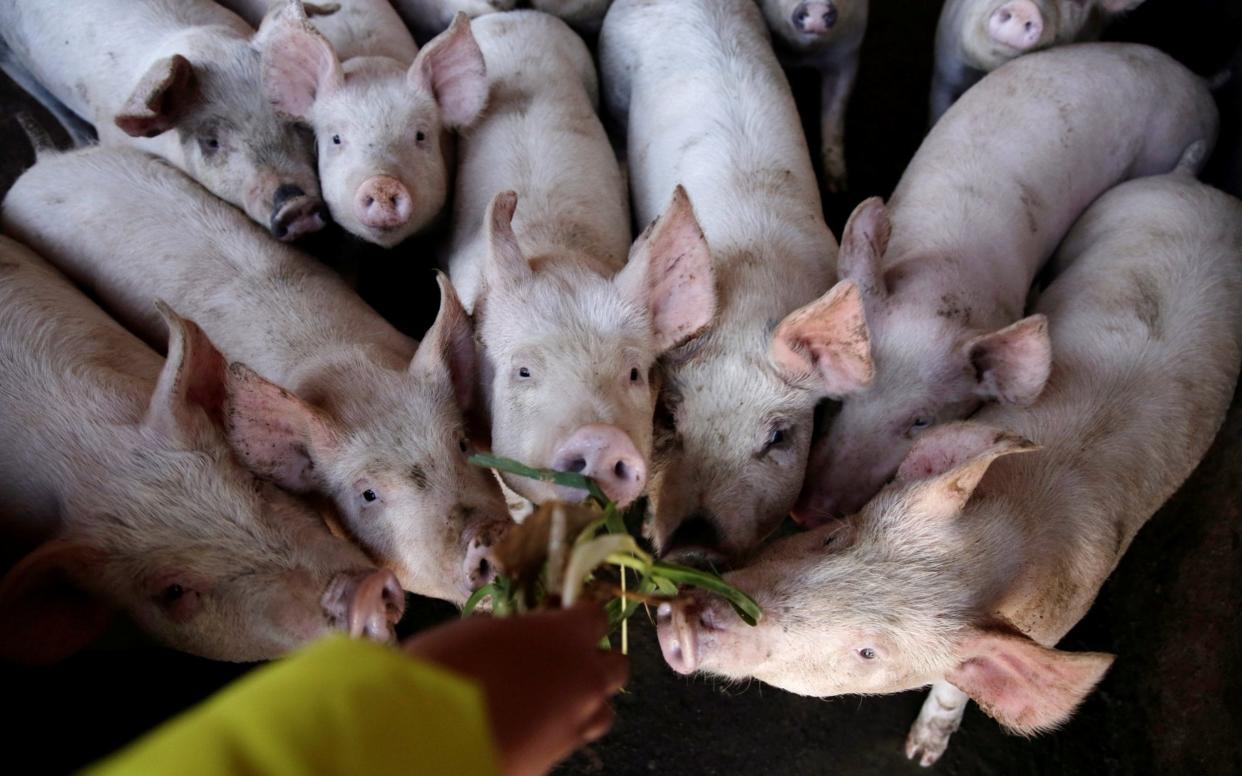Chinese New Year celebrations could further spread deadly African swine fever outbreak

Increased consumption of pork during China's upcoming New Year festivities could lead to fresh outbreaks of African swine fever, a viral disease that can wipe out whole herds of animals, an expert in veterinary medicine has warned.
China has been fighting the highly contagious disease since August last year, with around 100 farms reporting outbreaks and at least 200,000 pigs culled.
Last week a modern mega-farm, with some 73,000 pigs, reported an outbreak of the fever - the largest farm to date to be infected.
Chinese New Year, which takes place on February 5, will see an increase in the consumption of pork - the country's most popular meat - as people celebrate with family feasts.
Dirk Pfeiffer, professor of veterinary medicine at City University of Hong Kong, described China as the "Himalayas of pigs" as the country keeps between 50 and 60 per cent of the world's pig population.
“With Chinese New Year coming up, there will be more demand and more trade in pork and it’s likely that there will be an increase in outbreaks.

“Chinese New Year involves lots of festivities; it is about eating at home with family,” he told The Telegraph. “People want to eat meat, and in China they love pork, so it will create a lot of opportunity for pork to be moved around the country and also along the border. This is illegal, but it has always been a porous border.”
While African swine fever cannot be caught by humans, the deadly viral disease can wipe out whole herds of pigs. There is no vaccine for the disease although UK researchers are currently working on one.
The disease has been found in Eastern Europe and Belgium and UK farmers are worried that it could jump here.
The discovery of the illness on the Chinese mega farm, which is part owned by Danish investment funds, has raised concerns that even industrial farms with the best levels of bio-security are at risk of infection.
Among a herd of 15,000 breeding pigs on the farm in the northeastern Heilongjiang province, 4,685 were infected with the disease and 3,766 have died, according to the Chinese Ministry of Agriculture and Rural Affairs. All animals on infected farms must be culled under current rules.
The ministry said that it was ‘resolute’ about stopping the spread, and has introduced emergency measures including a blockade and culling pigs.
But while concerned by the outbreak, Prof Pfeiffer said he was not surprised.
“Occasionally you expect some of the bigger farms to be infected,” he said. “If we now see lots of larger farms with African swine fever, then we should really be worried.”
The disease is unlikely to be eradicated from China because of the large number of small farms which are less likely to follow best practice disease control measures, said Prof. Pfeiffer.
"In Beijing, they are very worried about the spread, they are doing everything any other government would do" said Prof Pfeiffer. "But a change in industry needs to happen to really slow the spread.
"If it also moves into neighbouring countries like Vietnam, Laos and Cambodia - which don't have the same resources as China to tackle the disease - then it will become even harder to contain."

Protect yourself and your family by learning more about Global Health Security


